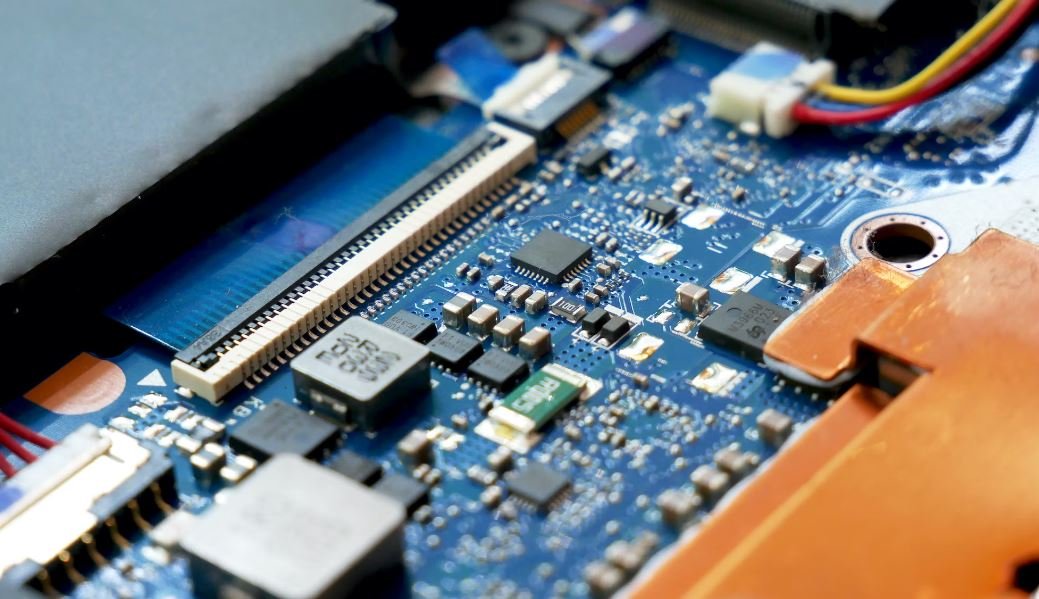Artificial Intelligence and Software Testing
With the rapid advancement of technology, artificial intelligence (AI) has become an integral part of various industries, including software development and testing. AI has revolutionized the way software testing is conducted, enabling faster and more efficient processes.
Key Takeaways
- Artificial intelligence (AI) is transforming software testing.
- AI-powered testing improves efficiency and accuracy.
- AI can handle complex test scenarios and generate meaningful insights.
The Role of AI in Software Testing
AI brings automation and intelligent decision-making capabilities to software testing. By using machine learning algorithms, AI can analyze vast amounts of data and identify patterns and anomalies that might be missed by human testers. This helps in detecting bugs, enhancing test coverage, and ensuring the quality of software.
*AI-powered testing tools can learn from past test cases and dynamically adjust the test plan for optimal coverage and efficiency.
Benefits of AI in Software Testing
AI-powered testing offers numerous advantages over traditional manual testing methods. Some notable benefits include:
- Increased Efficiency: AI can automate repetitive and time-consuming tasks, allowing testers to focus on more complex and critical areas.
- Improved Accuracy: AI-powered testing eliminates the possibility of human errors and ensures consistent and reliable results.
- Enhanced Test Coverage: AI can simulate a wide range of test scenarios, including edge cases and real-time user behavior, to uncover potential vulnerabilities or performance issues.
- Quick Debugging: AI can identify and prioritize bugs based on their severity, enabling faster resolution and reducing the time to market.
- Meaningful Insights: With AI, testers can gain valuable insights from test data, enabling them to make informed decisions and optimize software quality.
AI and Analytics in Software Testing
AI-powered testing not only automates the testing process but also leverages analytics to provide actionable insights. By analyzing test results and metrics, AI can identify patterns, predict potential issues, and suggest improvements. This helps in continuous quality improvement and proactive testing.
| Aspect | AI-powered Testing | Manual Testing |
|---|---|---|
| Speed | Faster due to automation | Relies on human effort |
| Accuracy | Highly accurate and consistent | Subject to human errors |
| Test Coverage | Extensive coverage including complex scenarios | Limited coverage based on manual test cases |
Future Trends in AI Testing
The field of AI testing is evolving rapidly, and here are some emerging trends to keep an eye on:
- AI-based self-healing systems that can automatically fix issues in real-time.
- Increased integration of AI testing with other software development processes, such as continuous integration and delivery.
- The use of natural language processing (NLP) for generating test cases and test data.
| Statistic | Percentage |
|---|---|
| Organizations using AI in testing | 85% |
| Reduction in testing time with AI | 40-70% |
| Improvement in software quality with AI | 80% |
Incorporating AI into Your Testing Process
To benefit from AI-powered testing, organizations need to adapt their testing processes and infrastructure. This involves:
- Investing in AI testing tools and platforms.
- Training testers and QA professionals on AI concepts and methodologies.
- Collaborating with AI experts and researchers to explore innovative solutions.
By embracing AI in software testing, organizations can streamline their testing efforts, uncover critical issues, and deliver high-quality software products to market faster.

Common Misconceptions
Misconception 1: Artificial Intelligence Can Completely Replace Human Software Testing
One common misconception people have about AI in software testing is that it can completely replace human testers. This is not true, as AI is not meant to replace human intelligence but to enhance it.
- AI can automate repetitive tasks and save time for testers.
- Human testers bring contextual knowledge and intuition that AI lacks.
- Collaboration between AI and human testers can lead to more effective testing processes.
Misconception 2: AI Will Solve All Software Quality Issues
Another misconception is that AI can solve all software quality issues. While AI has the potential to improve software testing, it is not a magic solution that can eliminate all bugs and issues.
- AI can help identify certain types of bugs faster and more efficiently.
- However, AI still relies on the quality of the test data and the effectiveness of the test scenarios.
- Human testers are still crucial to analyze complex issues and make subjective judgments.
Misconception 3: AI Requires No Human Intervention
Some people believe that AI in software testing requires no human intervention and can work independently. However, AI systems for testing still require human involvement and supervision.
- Human testers need to train and fine-tune AI models for specific testing needs.
- Human intervention is necessary to validate and interpret the results produced by AI algorithms.
- AI tools need to be monitored and regularly updated by humans to ensure their accuracy and effectiveness.
Misconception 4: AI Will Lead to Job Losses in Software Testing
There is a misconception that AI adoption in software testing will lead to job losses for human testers. While AI may automate certain tasks, it can also create new opportunities and change the nature of testing roles.
- AI can free up human testers’ time, allowing them to focus on more complex and creative testing activities.
- Human testers can shift their focus from manual testing to tasks that require critical thinking and problem-solving.
- New roles such as AI model trainers and AI system validators will emerge with the adoption of AI in testing.
Misconception 5: AI Can Predict All Software Failures
Lastly, some believe that AI can accurately predict all software failures. While AI can help detect certain patterns and anomalies, predicting all potential failures is not realistic.
- AI’s predictions are based on historical data and patterns, which may not cover all possible scenarios.
- New types of failures and unknown issues can still occur that AI models may not be trained for.
- Human testers are needed to explore edge cases and uncommon scenarios that AI might miss.

Technological Advancements in Artificial Intelligence
With the rapid advancement of Artificial Intelligence (AI), software testing is undergoing a transformation. This table showcases some of the prominent AI technologies and their applications in software testing.
| AI Technology | Application in Software Testing |
|---|---|
| Machine Learning | Automated test case generation and prediction of software defects |
| Natural Language Processing | Understanding and processing natural language test cases |
| Computer Vision | Detecting and analyzing visual aspects of user interfaces |
Benefits of AI in Software Testing
Implementing AI in software testing offers valuable benefits that boost efficiency and effectiveness. This table highlights some of the advantages of utilizing AI technologies in the testing process.
| Advantage | Explanation |
|---|---|
| Test Automation | Reduces manual effort, accelerates test execution, and improves test coverage |
| Intelligent Bug Detection | Enables early identification and resolution of software defects |
| Enhanced Test Case Generation | Generates diverse and comprehensive test cases to uncover different scenarios |
AI-Driven Testing Tools
Various software testing tools capitalize on AI capabilities to streamline the testing process. Here are some popular AI-driven tools used in software testing.
| Tool | Description |
|---|---|
| Selenium | Offers AI-powered test automation and comprehensive browser support |
| Testim | Utilizes machine learning algorithms to create and execute stable test cases |
| Applitools | Enables AI-based visual testing to identify UI defects across different devices |
Challenges in AI-Based Testing
While AI brings about significant advancements, there are challenges that need to be considered when implementing AI-based testing techniques.
| Challenge | Explanation |
|---|---|
| Lack of Training Data | Adequate training data for AI models may be limited or difficult to obtain |
| Algorithm Bias | AI algorithms can exhibit biases leading to unfair or inaccurate test results |
| Integration Complexities | Integrating AI tools into existing testing frameworks can present challenges |
Real-Life Applications of AI in Testing
AI technologies are already finding applications in various sectors. Here’s a glimpse of how AI is revolutionizing testing in different industries.
| Industry | AI Application |
|---|---|
| Healthcare | AI-powered medical software testing and ensuring patient data privacy |
| Automotive | Testing autonomous vehicle algorithms and safety systems |
| E-commerce | AI-driven testing of recommendation systems and order fulfillment processes |
AI Testing Research and Innovations
Ongoing research and innovations in AI testing drive continuous improvement in software quality assurance. Notable advancements in this field are highlighted in the following table.
| Advancement | Description |
|---|---|
| Neural Network-Based Test Oracles | Using neural networks to determine the correctness of software outputs |
| Genetic Algorithms for Test Suite Optimization | Applying genetic algorithms to optimize test case selection and execution |
| Explainable AI in Testing | Developing AI models that provide transparent explanations for test results |
The Future of Software Testing with AI
Artificial Intelligence continues to reshape the landscape of software testing, providing immense potential for further advancements. The integration of AI-driven techniques in testing processes ensures faster, more accurate, and comprehensive software quality assessment.
Conclusion
The fusion of Artificial Intelligence and software testing has unlocked substantial possibilities to enhance efficiency, accuracy, and effectiveness in software quality assurance. Leveraging AI technologies in testing processes brings numerous benefits, including automated test execution, intelligent bug detection, and enhanced test case generation. While challenges exist, ongoing research and industry applications gradually overcome them to pave the way for a future where AI seamlessly contributes to software testing excellence.
Frequently Asked Questions
What is artificial intelligence?
Artificial intelligence refers to the simulation of human-like intelligence in machines that are programmed to think and learn in a similar way to humans. It involves creating intelligent systems that can perform tasks that typically require human intervention, such as speech recognition, problem-solving, and decision-making.
Why is artificial intelligence important?
Artificial intelligence has the potential to revolutionize various industries by automating mundane tasks, improving efficiency, and enhancing decision-making processes. It has applications in healthcare, finance, transportation, customer service, and many other areas, leading to improved productivity and innovation.
How does artificial intelligence impact software testing?
Artificial intelligence technologies play a crucial role in software testing by automating repetitive and time-consuming tasks. AI-powered tools can analyze vast amounts of data, identify patterns, and perform intelligent test case generation and prioritization, enabling faster and more efficient software testing processes.
What are the benefits of using artificial intelligence in software testing?
By leveraging artificial intelligence in software testing, organizations can reduce human effort, accelerate test execution, increase test coverage, and improve overall software quality. AI can help identify defects, predict potential issues, and provide insights into application performance, leading to enhanced reliability and user satisfaction.
What are the challenges of implementing artificial intelligence in software testing?
While artificial intelligence offers significant advantages in software testing, there are also challenges. These include the need for large and representative datasets, the requirement for skilled AI practitioners, ethical considerations, and potential biases in AI algorithms. Ensuring transparency, interpretability, and fairness in AI-based software testing approaches is crucial.
What AI techniques are commonly used in software testing?
Various AI techniques are utilized in software testing, including machine learning algorithms, natural language processing, deep learning, expert systems, and reinforcement learning. These techniques enable automated test generation, test execution, defect prediction, anomaly detection, and other advanced testing capabilities.
Can AI completely replace human testers in software testing?
No, AI cannot entirely replace human testers in software testing. While AI can automate certain tasks and improve efficiency, human testers are still needed to evaluate the quality of software from a user’s perspective, perform complex exploratory testing, and make critical decisions based on domain knowledge and intuition.
How can AI contribute to the future of software testing?
AI has the potential to shape the future of software testing by enabling more intelligent and autonomous testing processes. As AI technologies continue to advance, we can expect improved defect detection, increased automation, better test coverage, and more efficient delivery of high-quality software.
What are the limitations of AI in software testing?
While AI has significant potential in software testing, it also has limitations. AI models heavily rely on the quality and representativeness of training data, and they may struggle with complex scenarios that are not adequately captured in the training phase. Additionally, AI models may be susceptible to adversarial attacks and may lack human-like reasoning abilities.
How can organizations prepare for integrating AI into their software testing processes?
To prepare for integrating AI into software testing, organizations should invest in AI education and training for their testing teams. They should also evaluate and select AI tools and platforms that align with their testing requirements and ensure proper data management and governance practices. Regular evaluation and monitoring of AI models and algorithms are essential to maintain their effectiveness and address any biases or ethical concerns.





